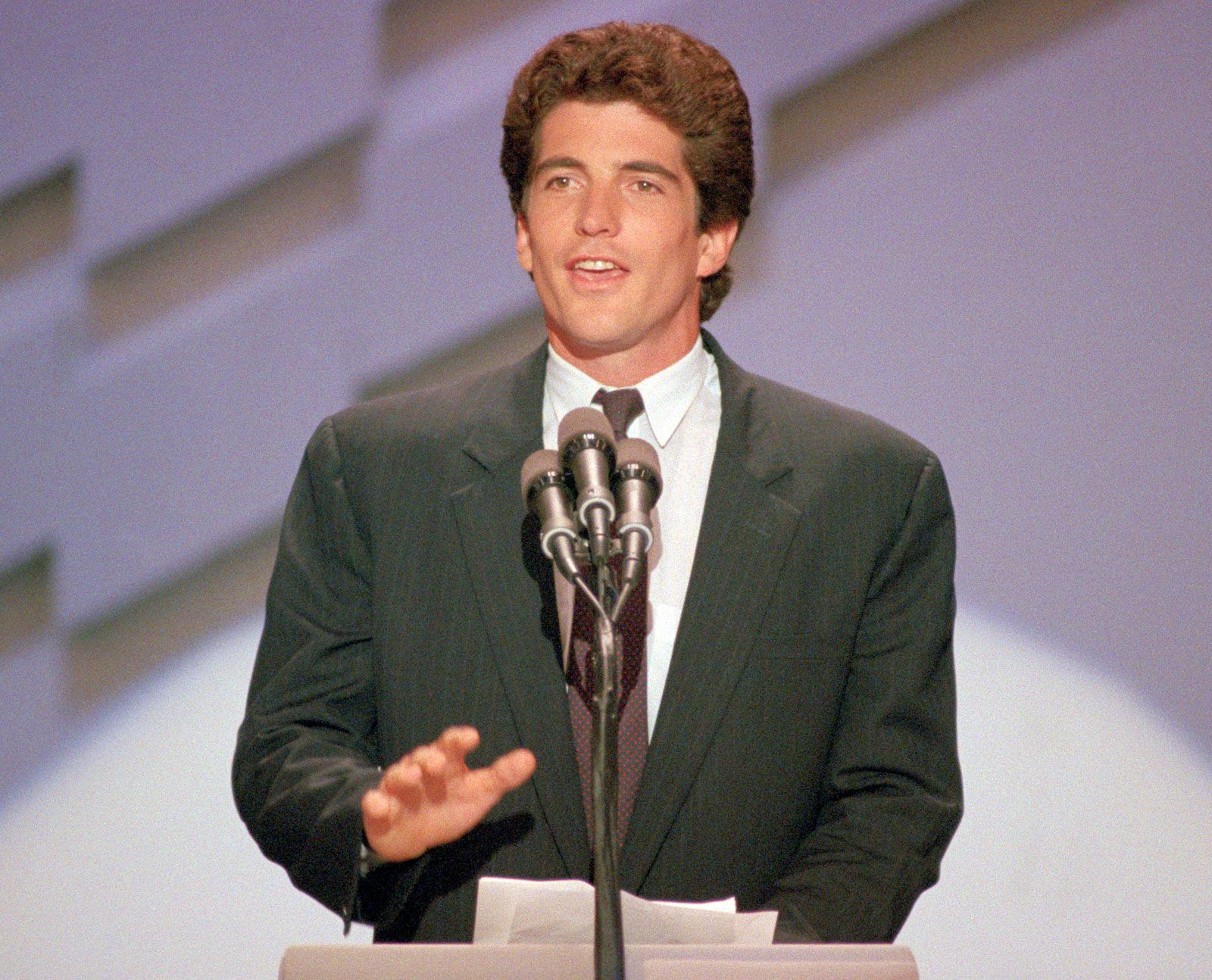John F. Kennedy Jr. remains an enduring figure in American public memory, not only due to his lineage as the son of President John F. Kennedy, but also for his own charisma, career, and ultimately, his tragic death. The question, “when did John F. Kennedy Junior die?” is frequently asked by those seeking to understand this pivotal moment and the legacy he left behind.
The Fateful Date: July 16, 1999
John F. Kennedy Jr. died on July 16, 1999. This date marks the end of a life lived under intense public scrutiny and the beginning of a renewed wave of mourning for the Kennedy family, often associated with both triumph and tragedy. His death was not due to illness or age, but a devastating plane crash that also claimed the lives of his wife, Carolyn Bessette-Kennedy, and her sister, Lauren Bessette.
John F. Kennedy Jr. at the Jackie Robinson Foundation event in New York City, showcasing his commitment to public service and engagement.
Circumstances of the Plane Crash
The accident occurred on a Friday evening. Kennedy was piloting his Piper Saratoga II HP, a single-engine, light aircraft, from Fairfield, New Jersey, to Martha’s Vineyard, Massachusetts. From there, the plan was to continue to Hyannis Port, Massachusetts, for a family wedding at the Kennedy compound. Carolyn and Lauren Bessette were passengers on board.
The National Transportation Safety Board (NTSB) investigation concluded that the probable cause of the crash was pilot error. Kennedy, who was a relatively inexperienced pilot in instrument meteorological conditions (IMC), lost control of the aircraft during a night-time descent over water. The conditions that evening included haze and reduced visibility, which are challenging for pilots, especially those not fully trained for instrument flying.
The Search and Recovery Efforts
When the plane failed to arrive at its destination, and after family members could not reach them, a search was initiated. The U.S. Coast Guard, along with Navy divers and other agencies, conducted an extensive search of the waters off Martha’s Vineyard. The wreckage of the plane was located in the Atlantic Ocean a few days later. Tragically, the bodies of John F. Kennedy Jr., Carolyn Bessette-Kennedy, and Lauren Bessette were recovered from the wreckage.
A poignant image from John F. Kennedy Sr.’s funeral, young John Jr. salutes his father’s casket, a moment etched in American memory, foreshadowing the family’s continued presence in the nation’s consciousness.
Public Reaction and Mourning
The news of John F. Kennedy Jr.’s death sent shockwaves across the nation and the world. There was an outpouring of grief and remembrance. For many, he represented a link to the Camelot era of his father’s presidency, a time of hope and optimism. His own life, lived largely in the public eye, had captivated people for decades, from “John-John” playing in the Oval Office to his career as a lawyer and magazine publisher.
The public mourning reflected not only the loss of a prominent figure but also a sense of shared history and nostalgia. The Kennedy family had become intertwined with the American narrative, and John Jr.’s death was perceived by many as another chapter in their ongoing saga of triumphs and tribulations.
John F. Kennedy Jr.’s Life and Enduring Legacy
Born on November 25, 1960, John Fitzgerald Kennedy Jr. lived his entire life under the spotlight. He navigated the challenges of being a Kennedy with a blend of grace and determination. After graduating from Brown University with a degree in American History and briefly pursuing acting, he earned a law degree from New York University and worked as an assistant district attorney in Manhattan.
In 1995, Kennedy co-founded George magazine, a glossy publication that aimed to merge politics and pop culture. This venture showcased his entrepreneurial spirit and desire to engage with public issues in a contemporary and accessible way. His marriage to Carolyn Bessette in 1996 further intensified public interest in his life, turning them into a celebrated couple followed intensely by the media.
 John F. Kennedy, Jr.
John F. Kennedy, Jr.
John F. Kennedy Jr. speaking at the Democratic National Convention in Atlanta in 1988, marking his entry into the political sphere and hinting at a potential future in public service, which was ultimately unfulfilled due to his untimely death.
While his life was cut short at the age of 38, John F. Kennedy Jr.’s impact remains significant. He is remembered for his charm, his commitment to public service, and his efforts to forge his own path while carrying the weight of his family’s legacy. His death on July 16, 1999, marked the end of his personal journey but solidified his place in American history and popular culture, ensuring that the question of “when did John F. Kennedy Junior die?” continues to be asked and answered, keeping his memory alive.

